#Edmund Gosse
Photo
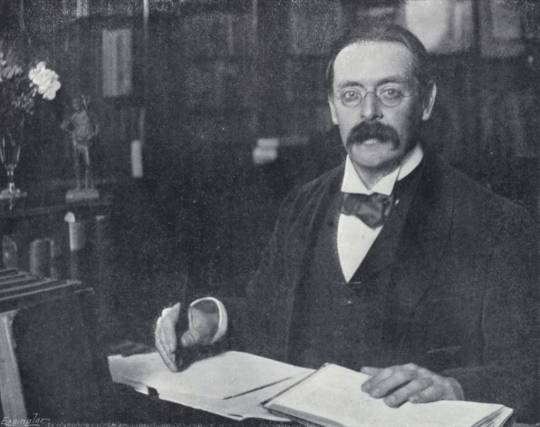
Edmund Gosse (deceased)
Gender: Male
Sexuality: Bisexual
DOB: 21 September 1849
RIP: 16 May 1928
Ethnicity: White - English
Occupation: Poet, writer, writing critic, professor
#Edmund Gosse#bisexuality#bisexual men#lgbt history#lgbt#lgbtq#mlm#male#bisexual#1849#rip#historical#white#english#poet#writer#critic#teacher
41 notes
·
View notes
Note
Hello, me again! I hope this doesn't sound like a weird question, but I was intrigued to discover that EF Benson and Edmund Gosse knew each other. I have only recently read 'Father and Son', which I was so bowled over by. I saw that Fred's novel 'The Challoners' is reported to be a thinly veiled portrait of his father? I wondered, do you think that Gosse might in any way have been inspired by this to write his own memoir? On the face of it their childhood experiences were very different but I am haunted by some common themes they might have shared and wonder if they ever talked about it. But anyway, I'd just love to hear any thoughts you have on the Gosse/Benson connection.......
Hey! This is actually a very interesting question. Edmund Gosse — which was one of Arthur's (and Henry James') closest friends — is a rather prominent figure in A Very Queer Family, particularly in chapter four, "Fifty Ways to Say I Hate My Father". Goldhill uses the relationship between Gosse and his father as a parallel to the Benson brothers' own relationship with their father, including the way they decided to portray this relationship in their writing.
Arthur and Fred's family biographies seem to be portray their father as a fairly benevolent (if tormented) figure (Hugh seemed less positive, I guess). They never had the courage to be so openly candid about him the way Gosse was about his father. Despite being covertly inspired by Fred's family life, The Challoners is a fictional story and was seen as such. So I don't think it was an inspiration for Gosse's scandalous autobiography (though it's hard to say for sure, of course).
On the other hand, Father and Son seems to have made an impression with the Bensons. According to Goldhill, it "posed a challenging, empowering, worrying question to the children of Edward White Benson" — meaning how they should deal with the memory of their father. Arthur wrote that it was “a book I should really like to have written” (as if!) and a "beautiful… really perfect art".
Arthur and Edmund had an "intimate, gossipy, often feverishly disagreeable" relationship. Both were deeply closeted men, and I think they knew about each other's sexuality (perhaps it was something that unconsciously drew them closer), but they probably never talked much about it.
By the way, here are some excerpts by Goldhill about The Challoners:
When Fred Benson published The Challoners in 1904, Arthur, like all the children, quick to enter into a competitive possessiveness over their parents’ stories, commented in his diary, “Mr Challoner—though drawn too superficially from Papa— is an interesting character. But Fred fails purely from lack of sympathy with and knowledge of what really could be inside a man like that.”
[…] So another way to write “I hate my father” is to publish a novel in which an evangelical father recognizes, and recognizes truly, that his son— named for the author’s father’s idolized perfect and dead child— “almost hated him.”
7 notes
·
View notes
Note
Hello! I liked your observation about Ralph in your post about Edmund Gosse’s memoirs. It made me think of this comment of Ralph’s when he is talking about his mother: “Her [italics] parents were Plymouth Brethren”. MR must have had something specific in mind here. From your readings, do you have any insights about this and any other thoughts you’d like to share about Ralph’s upbringing in a “ Christian household”?
Thank you so much for this ask @eclare1000, sorry, it’s a long one! I warmly recommend ‘Father and Son’ in its own right, I loved its compassion, humour and insights into childhood, and for me there are many resonances with Ralph. We get so little, don’t we? Just the reference to the cruelty of ‘good women’, the PB reference and the bit about Laurie not being brought up in a ‘Christian home’ which is so bitter and angry.
I feel the emphasis with ‘her parents’ suggests his maternal grandparents are distant in some way, perhaps they cut off his mother when she ‘married out’? It could mean his mother is no longer PB (doesn’t feel likely though)? Or, it could mean that his father was PB too, but a convert, not born into the faith. I suppose it means her upbringing was very strict, and it left her at a loss to cope with something perfectly natural (two pre-pubescent children showing curiosity about their bodies). So he says ‘She couldn’t help how she felt’, as if she’d been programmed and couldn’t just be humane. I’m struck by her inability to articulate what she felt, which I think is such a major theme in the book.
In the Gosse, there is a very strong theme, particularly with his mother, of fatalism and letting God decide, a lack of agency. I wonder if that plays a part, and that’s why he is so bitter, because she abrogated responsibility. She failed to recognise perhaps that her religious upbringing was urging a kind of un-Christian cruelty on a helpless child. Is that why he feels so responsible, because religious faith let him down and he has taken all of it on himself?
I get the feeling that his father came from a less strict (but still Christian) background but went along with whatever his mother wanted to please her, and did the beating for her and the rather clichéd exhortation to ‘learn a clean life’.
I also wonder if completely unrealistic expectations were loaded onto Ralph as a young child (another theme in the Gosse), making the crimes of 6-year-old Ralph all the more heinous. And of course there is a similar fall at 19 – his expulsion being all the more scandalous for his immense prestige (as Laurie puts it).
There are some other resonances for me that are fascinating. I had already started to wonder about Ralph’s love of language and facility for making up stories and telling lies to get out of trouble. There are also several references to Laurie thinking he is just making things up about himself to please him! I wondered about the idea of fiction being a ‘forbidden thing’ in a religious household, and was amazed to discover that Edmund Gosse’s mother believed fiction a ‘sin’ and kept it out of the house – he did not have access to literature for much of his childhood. I sometimes feel that Ralph might have discovered the joys of telling stories relatively late, and relished their power.
Another thing that fascinates me about the Plymouth Brethren is that they are essentially rebellious – they were formed in defiance of organised religion. So Ralph’s mother grew up in a ‘rebellious household’ but was indoctrinated with ideas from a young age that she couldn’t properly articulate. Then she ‘rebelled’ on some level. For me this ties in with that very contradictory aspect of Ralph, that he is desperate to be part of a community, but he also makes up his own rules.
And related to this, bible-study is the key – PB do not accept intermediaries telling them what to believe. Gosse describes the way his parents spent hours discussing biblical texts together. I feel Ralph did this as a child, and when he discovered the Phaedrus, I imagine him reading it with the same fervour, poring over every word looking for a moral code he could live by – working up what he was into a religion.
I just checked that bit again about ‘good women’ and found this: “Suddenly he seemed to remember the text of his earlier sermon” Wow! Ralph is sermonising, but now he has found a new religion! PB were big on converting people and in ‘Father and Son’, Gosse refers to being expected to ask strangers he meets if they are saved. Hitherto I have felt that Ralph is in ‘Head boy’ mode or ‘school debate’ mode when he is arguing so forcefully with Laurie. But now I am seeing a passionate and fervent preacher. He is a proselytiser all right. Perhaps Mary wanted to give one of her most attractive and powerful characters a bit of religious fervour when stating his cause. After all, why should religious people have the monopoly on the right to be a decent human being?
#Edmund Gosse#Father and Son#the charioteer#ralph lanyon#Plymouth Brethren#Religious upbringing#Thank you so much for this ask!
7 notes
·
View notes
Photo

Arthur Rackham illustration for The Allies Fairy Book, With an Introduction by Edmund Gosse. 1916.
#arthur rackham#1916#illustration#fairy books#the allies fairy book#edmund gosse#british illustration#british art#rackham#fairytale illustration#book illustration
2 notes
·
View notes
Text

Sylvia Gosse - Edmund Gosse in his study (ca. 1913)
178 notes
·
View notes
Text
By: Andrew Doyle
Published: Apr 18, 2024
“Why do you think the giraffe has a long neck?” says the naturalist Philip Henry Gosse to his son Edmund while he tucks him up into bed. “Does it have a long neck so that it can eat the leaves at the top of the tree? Or does it eat the leaves at the top of the tree because it has a long neck?”
“Does it matter?” says Edmund.
“A great deal, my son.”
This exchange is taken from Dennis Potter’s wonderful television play Where Adam Stood (1976), a loose adaptation of Edmund Gosse’s Father and Son (1907). Gosse’s book must rank among the very best of autobiographies. It is his account of being raised by his father Philip, one of Darwin’s close contemporaries, a man whose faith in the Bible was so fervent that the revelations of natural selection almost destroyed him.
The question about the giraffes is Potter’s invention, but it adroitly captures the profound inner struggle of this scientist who had devoted his life to a belief-system that was suddenly falling apart. It wasn’t just a matter of changing his mind as new evidence emerged, because the proposition that the earth’s age could be numbered in the billions rather than the thousands was not something that his faith could accommodate. The stumbling block was the Bible, a point that Edmund is quick to acknowledge in his book:
“My Father’s attitude towards the theory of natural selection was critical in his career, and oddly enough, it exercised an immense influence on my own experience as a child. Let it be admitted at once, mournful as the admission is, that every instinct in his intelligence went out at first to greet the new light. It had hardly done so, when a recollection of the opening chapter of Genesis checked it at the outset. He consulted with Carpenter, a great investigator, but one who was fully as incapable as himself of remodelling his ideas with regard to the old, accepted hypotheses. They both determined, on various grounds, to have nothing to do with the terrible theory, but to hold steadily to the law of the fixity of species.”
Philip Gosse had an instinct for scientific enquiry, but the new discoveries simply could not be reconciled with his holy text. His whole being was invested in the Biblical truth, and to cast that in doubt would be to undermine the crux of his being. To admit that he might have been wrong, in this particular instance, would be a form of spiritual death.
Both Gosse’s memoir and Potter’s dramatisation grapple with what Peter Boghossian and James Lindsay (in their book How to Have Impossible Conversations) call an “identity quake”, the “emotional reaction that follows from having one’s core values disrupted”. Their point is that when arguing with those who see the world in an entirely different way, we must be sensitive to the ways in which certain ideas constitute an aspect of our sense of self. In such circumstances, to dispense with a cherished viewpoint can be as traumatic as losing a limb.
The concept of identity quakes helps us to understand the extreme political tribalism of our times. It isn’t simply that the left disagrees with the right, but that to be “left-wing” has become integral to self-conceptualisation. How often have we seen “#FBPE” or “anti-Tory” in social media bios? These aren’t simply political affiliations; they are defining aspects of these people’s lives. This is also why so many online disputes seem to be untethered from reason; many are following a set of rules established by their “side”, not thinking for themselves. When it comes to fealty to the cause, truth becomes irrelevant. We are no longer dealing with disputants in an argument, but individuals who occupy entirely different epistemological frameworks.
Since the publication of the Cass Review, we have seen countless examples of this kind of phenomena. Even faced with the evidence that “gender-affirming” care is unsafe for children, those whose identity has been cultivated in the gender wars will find it almost impossible to accept the truth. Trans rights activists have insisted that “gender identity” is a reality, and their “allies” have been the most strident of all on this point. As an essentially supernatural belief, it should come as no surprise that it has been insisted on with such vigour, and that those who have attempted to challenge this view have been bullied and demonised as heretics.
Consider the reaction from Novara Media, a left-wing independent media company, which once published some tips on how to deceive a doctor into prescribing cross-sex hormones. Novara has claimed that “within hours of publication” the Cass Review had been “torn to shreds”. Like all ideologues, they are invested in a creed, and it just so happens that the conviction that “gender identity” is innate and fixed (and simultaneously infinitely fluid) has become a firm dogma of the identity-obsessed intersectional cult.
Identity quakes will be all the more seismic within a movement whose members have elevated “identity” itself to hallowed status. When tax expert Maya Forstater sued her former employers for discrimination due to her gender-critical beliefs in 2019, one of the company’s representatives, Luke Easley, made a revealing declaration during the hearing. “Identity is reality,” he said, “without identity there’s just a corpse”.
This sentiment encapsulates the kind of magical thinking that lies at the core of the creed. So while it becomes increasingly obvious that gender identity ideology is a reactionary force that represents a direct threat to the rights of women and gay people, there will be many who simply will not be able to admit it. In Easley’s terms, if their entire identity is based on a lie, only “a corpse” remains. From this perspective, to abandon one’s worldview is tantamount to suicide.
This determination to hold fast to one’s views, even when the evidence mounts up against them, is known as “belief perseverance”. It is a natural form of psychological self-defence. After all, there is a lot at stake for those who have supported and enabled the Tavistock Clinic and groups like Mermaids and Stonewall. Many of the cheerleaders have encouraged the transitioning of children, sometimes their own. What we have known for years has now been confirmed: many of these young people will have been autistic, or will have simply grown up to be gay. For people to admit that they supported the sterilisation of some of the most vulnerable in society would be to face a terrible reality.
This idea was summarised in parliament on Monday by Victoria Atkins, Secretary of State for Health and Social Care. Addressing Labour MP Wes Streeting, she said:
“I welcome all those who have changed their minds about this critical issue. In order to move forward and get on with the vital work that Dr Cass recommends, we need more people to face up to the truth, no matter how uncomfortable that makes them feel. I hope the honourable gentleman has the humility to understand that the ideology that he and his colleagues espoused was part of the problem. He talked about the culture and the toxicity of the debate. Does he understand the hurt that he caused to people when he told them to ‘just get over it’? Does he know that when he and his friends on the left spent the last decade crying ‘culture wars’ when legitimate concerns were raised created an atmosphere of intimidation, with the impact on the workforce that he rightly described?”
youtube
It remains to be seen whether those politicians who failed to grapple with the implications of gender identity ideology, and who mindlessly accepted the misleading rhetoric of Stonewall and its allies, will have the humility to admit that they were wrong. Many culpable celebrities have been choosing to remain silent in recent days, while others have opted for outright denial. On the question of puberty blockers and their harm to children, television presenter Kirstie Allsop has made the remarkable claim that “it is, and always has been possible to debate these things and those saying there was no debate are wrong”. The concept of “no debate” was official Stonewall policy for many years, and has been a mantra for many within the trans activist movement. To suggest that there have been no attempts to stifle discussion on this subject can only be ignorance, mendacity or a remarkably acute form of amnesia.
Of course, the stakes could hardly be higher. We are dealing with complacency and ideological capture that had resulted in the sterilisation and castration of healthy young people. It is, without a doubt, one of the biggest medical scandals of our time. It is entirely understandable that those who have supported such terrible actions would enter a state of denial. And so we must also be sensitive to those who are now strong enough to admit that they were mistaken.
But we also need to prepare ourselves for the inevitable doubling down. There are those whose psyche cannot withstand the kind of identity quake that Philip Henry Gosse once suffered. His solution was to write a book explaining why God had left evidence of natural selection. It was called Omphalos (1857) – the Greek word for “navel” – and his thesis was that since Adam had no mother, his navel was merely an addition to generate the illusion of past that did not exist. The fossils that were being discovered in the ground were therefore no different than the rings in the first trees in the Garden of Eden. They weren’t evidence of age, but rather part of God’s poetical vision.
Some of the revisionism and excuses from gender ideologues are likely to be even more elaborate. They have invested too much in their fantasies to give up without a fight.
==
As gender identity ideology falls apart, we need to pay attention to who is working to fix the mistakes they made, who is doubling down, and who is remaining silent.
#Andrew Doyle#revisionism#gender ideology#gender identity ideology#queer theory#Cass report#Cass review#intersectional feminism#gender cult#medical scandal#medical mutilation#medical corruption#ideological capture#ideological corruption#religion is a mental illness
40 notes
·
View notes
Text
“What’s eating you?”
Edmund Pevensie x Fem!Reader
Warnings - We live in a society, allusions to sex, innuendos.
Summary - Gurl I dunno.
A/N: Don’t repost, re-blogs are absolutely fine
—————
“Pevensie!”
There you appeared with a moonshine induced stagger. One could have sworn Edmund Pevensie’s eyes shone. He quickly assumed his original demeanour. Cold and unbothered, although now with a certain lightness to his shoulders. All the while, you made your boisterous trek to his spot, sporting a lopsided grin.
“Hello,” you sung, albeit badly.
He released an audible humph.
“Geez, something crawl up your trousers, old boy?”
“Okay.” Edmund raised a brow. Then, another.
You paused, maintaining deadly serious eye contact as if about to divulge the most sordid goss.
“What’s eating you?”
“Excuse me?”
“The phrase,” you jabbed at an explanation. “What’s bothering you?”
“In what world are you from where they use that euphemism?”
“Give a girl a break, concern is the most honourable gift I’ve ever bestowed upon anyone,” you returned a salute.
He scanned your hopeful countenance with a critical eye and took a generous swig of brown from a suddenly procured flask in his hand. Ed sighs, his thoughts muffled by the wild clamour of teenagers coupled with the cantankerous ambience that parties generally possessed without fail.
“So,” you inhaled, teetering on the edge of a conversation doomed for death. “Wanna get out of here?”
His lips twitched with a growing smile at the sight of your determined look in his periphery, more than prepared to bolt at the door. Not that you ever noticed the subtle glances, after all, stoicism was his magnum opus while yours ignorant bliss.
“Suit yourself,” you concluded with a shrug and waltzed out the exit and Edmund felt obligated to follow, legs mechanically willing themselves in your direction. Someone had to look out for you.
Just when he thought he’d lost you, Edmund found you leaning against the stout wood of an old oak. You bathed in the staple warmth of summer air, skin set aglow by the moonlight streaming through cracks of the foliage.
“You know, it’s considered rude to stare.” You whispered with closed eyes, conscious of his burning scrutiny.
He lingered at a comfortable distance from you, enraptured by your surreal tranquillity. Your eyes fluttered open, the reflection of the moon evident in your dilated pupils. He drew closer, your presence willing him to motion, like a magnet, until he was close enough to hear the rhythmic pattern of your breath.
The proximity was agonising, enticingly so. Your tangibility rushed him into a confused frenzy. He wanted to touch you. Worship the deity that you were. Longing nagged at him. How was it you were so close yet out of reach? It was aggravating. You were aggravating and this puzzle could only be solved in one way.
You looked at him through your lashes, a haziness dancing across your face. “What’s eating you, Pevensie?”
What passed in the moment was a blur.
Edmund stood before you, obscuring the view of the moon. You tilted your head, the bare slope of your neck appeared so inviting. It took everything to restrain himself. To maintain his resolve. But if you would just ask nicely, sweetly. Edmund’s heart would yield.
Your stare was a siren call to him. Beckoning and beckoning. It seemed his heart was not the only appendage at your beck and call. Edmund’s hands had a mind of their own and commanded forward. You bristled, the grip snaking around your waist shook your guard.
“Is this o-”
“Yes,” you gasped, much like a fish out of water.
Edmund chuckled, “You didn’t even let me finish, love.”
“In the biblical sense, I just might if you got on with it already.”
Seriously, you were rushing this? He pictured this a little differently, wanting to take his time with the pretty thing before him and explore the contours of your soul. After all, not only was Edmund Pevensie a fighter but a lover too.
Impatient hands latched onto his shirt collar, willing him forward and flush against you. The contact stirred something deep within your lower belly, something reserved only for him. He kissed you hard, then pulled away, noses nudging each other’s. You smiled, baring your teeth with closed eyes.
“Y/N,” Edmund breathed, “Look at me.”
“Hmm?”
“I like you, alright?”
“Alright. I like you too.”
Resolve broken.
You laughed heartily. “So, why don’t you just get it over with, buddy boy?”
“Buddy boy, huh?” He pulled away, extending a hand to pull you from the mighty oak. “You really are something.”
“Thanks a bunch, Eds,” you scoffed, jutting your tongue out. “Not only am I aroused, but aroused and disappointed.”
You turned to leave but Edmund stopped you.
“Listen, it’s not that. I just-”
“Are you a virgin?” you deadpanned, “Is that what this is?”
Edmund pouted, wounded. You raised two brows.
Ignoring the blow to his ego, he pressed on, “I just want to take my time with you, is all.”
Oh. You warmed from the explanation.
“So, that’s what’s been bothering you.”
You approached again and this time planted a kiss on his cheek, his face unusually ruddy from the affection.
“Well, at least let me take you home?” he suggested.
“I do have a curfew.”
“So, about the sex…” you began, looping an arm around his.
Edmund rolled his eyes, “Name the date.”
187 notes
·
View notes
Text
THIS DAY IN GAY HISTORY
based on: The White Crane Institute's 'Gay Wisdom', Gay Birthdays, Gay For Today, Famous GLBT, glbt-Gay Encylopedia, Today in Gay History, Wikipedia, and more … December 30

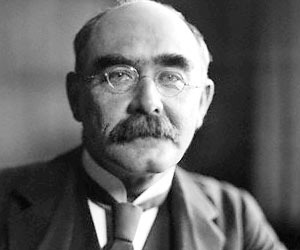
1865 – Rudyard Kipling (d.1936) in "The Appeal" begged "Seek not to question other than / The books I leave behind." The two-line poem written shortly before his death is decribed by his editor M. M. Kaye as "a plea to posterity to respect his private life." Such an appeal proves especially ironic having been made by a man who deliberately lived by far the greatest part of his life in the public eye, as a result of his novels, stories, poetry, and politics.
Born in India and schooled in England, in his late teens Kipling entered the public stage as a newspaperman in India; the poems and prose vignettes of British colonial and native life in South Asia that he wrote for local publications proved wildly successful when collected and republished in book form in England. They established him as one of the most original voices of his generation. For the entire of his adult life Kipling fashioned himself as the conscience of the English-speaking world, refusing government honors in order to remain free to pontificate publicly on a host of social, political, and economic issues.
In the vein of the opening quote, the systematic destruction of his private papers (letters, diaries, and drafts of works), begun by Kipling while alive, was continued by his wife after his death, and completed by his daughter following Mrs. Kipling's own demise. Consequently, most of the evidence concerning Kipling's private life has been lost, while suspicion has been aroused of a secret that Kipling and his family hoped to suppress.
That secret, biographer Martin Seymour-Smith concluded in 1989, is that Kipling was in love with a charming, young, American literary agent, Wolcott Balestier, who died suddenly in 1891, and that a grief-stricken Kipling married the man's sister Caroline only six weeks later out of a sense of loyalty to his departed friend and/or guilt over his homosexual desire.
Kipling's nature was so deeply homosocial, echoed in the "brotherly love" that permeates his writings, that even after he married, he proved incapable of representing heterosexual love in anything other than a stilted, wooden way. In adulthood, he bonded closely with men like Henry James (who gave away the bride at the Kiplings' wedding), Edmund Gosse, and Cecil Rhodes who are now recognized to have been discreet or closeted homosexuals. Contemporaries questioned Kipling's orientation. For example, writer Enid Bagnold wondered—after she had become friendly with Kipling and his wife—if the older man was not a repressed homosexual.
As Martin Seymour-Smith interprets the facts of Kipling's life, Kipling feared expressing homosexual desire because he associated homosexual acts with "beastliness" and anarchy. His small size made him particularly vulnerable to other boys' advances in school, further coloring with anxiety any desire that he may have felt. Although in later life he publicly insisted that United Services College had been free of "uncleanness" while he was in residence there, he complained privately of the sexual activities that he had indeed regularly witnessed among his contemporaries, and in which he himself was accused of participating by one of his schoolmasters.
However, Leon Edel concluded Kiping's homosexuality was so buried that although "Between Balestier and Kipling it was a case of camaraderie and of love, almost at first sight. Platonic, quite clearly." that "Both would have been terrified at any other suggestion."


1901 – Beauford Delaney (d.1979) was an American modernist painter. He is remembered for his work with the Harlem Renaissance in the 1930s and 1940s, as well as his later works in abstract expressionism following his move to Paris in the 1950s.
Born in 1901, Delaney began working with Lloyd Branson, a Knoxville impressionist painter who saw talent in the young artist and took him under his wing when he was about 20 years old.

The Time of Your Life
In 1923, Delaney left home for Boston, where he studied at several schools, including the Massachusetts Normal School and the South Boston School of Art. He made his way in 1929 to New York, where he floated between Greenwich Village and Harlem. With the city in the throes of the Great Depression, he supported himself with various small jobs while painting simple but earnest portraits, modernist interiors and urban street scenes often depicting the disenfranchised and downtrodden.
In 1953, at the age of 52, Delaney moved to Paris, where his friend, James Baldwin, had already fallen into a steady rhythm of expat life. Settling in the Left Bank neighborhood of Montparnasse, an artists’ enclave, Delaney, like Baldwin, relished a sense of freedom as a gay black man that he did not have in the United States.Delaney found little commercial success in Paris and survived mostly on the generosity of friends and dedicated patrons. Existing mental health problems only intensified and, by the 1960s, his decline was fueled by heavy drinking and the onset of schizophrenia. A year after his Harlem retrospective, he was dead. Baldwin and other friends paid for his burial in the Thiais cemetery near Paris.


1956 – Larry Duplechan, born in Los Angeles, California, is an American novelist. He is best known for his novels Blackbird, which is being adapted into a forthcoming film starring Mo'Nique and Isiah Washington, and Got 'til It's Gone, which won a Lambda Literary Award in the Gay Romance category at the 21st Lambda Literary Awards.
After graduation, he initially pursued a career in music, both as a solo singer and as a member of a jazz vocal group, but gave it up after the time demands of pursuing music while also holding down a full time day job began to threaten his relationship with his partner Greg Harvey.
Duplechan published his first novel, Eight Days a Week, in 1985. The novel introduced Johnnie Ray Rousseau, the lead character in nearly all of his subsequent novels. Blackbird, a prequel novel focusing on Rousseau's childhood, was published the following year and more strongly established Duplechan's reputation as an important writer of gay African-American fiction. He has also been identified as one of the first important gay writers to have come of age after the Stonewall riots, and whose writing thus lacked the internalized homophobia that often characterized the work of the previous generation of gay writers.
In 1990, he published Tangled Up in Blue, an AIDS-themed novel which was his only work not to feature Rousseau as its central character, although its main characters reappear in Duplechan's subsequent Rousseau novels as supporting characters.
Duplechan's next novel Captain Swing (1993) returned to Rousseau, and found him grieving the death of his boyfriend Keith in a car accident.
After Captain Swing, Duplechan took a hiatus from writing for several years and returned to singing, founding an a cappella vocal group and participating in community choirs after the home he shared with Harvey was damaged in the 1994 Northridge earthquake. A new 20th anniversary edition of Blackbird was published by Arsenal Pulp Press in 2006, and Duplechan's most recent novel to date, Got 'til It's Gone, was published by the same company in 2008.
Duplechan and Harvey legally married in 2008, during the period between the initial legalization of same-sex marriage in California and the passage of Proposition 8.

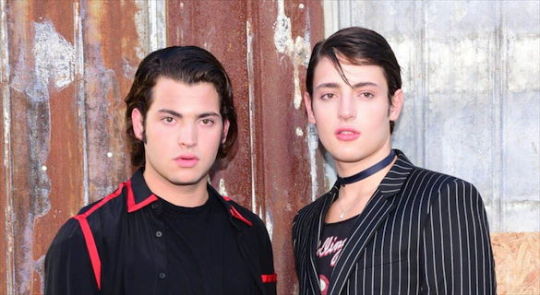
.Peter Mark Brant and brother Harry
1993 – Peter Mark Brant Jr. is an American socialite and model.
Peter Mark Brant Jr. was born and raised in Greenwich, Connecticut. Brant is the son of businessman and art collector Peter M. Brant and model Stephanie Seymour.
In 2011, Brant publicly came out as gay.
In 2014, Brant was quoted in a Harper's Bazaar profile of him, his brother Harry and mother, Stephanie, about enjoying his clan's notoriety, "We had to do a report about our parents: where they were born, what they did, and all that. Everyone else had to do theirs as homework, but I finished mine before class ended using Wikipedia."
In 2015, Peter along with his younger brother Harry, in collaboration with Mac Cosmetics, launched a unisex cosmetics line aimed at the Gender fluid youth movement.
In 2021, Harry died after an accidental drug overdose. The 24-year-old socialite and fashion circuit fixture had struggled with addiction and was due to enter a rehab facility imminently. Peter posted a tribute to him on Twitter.

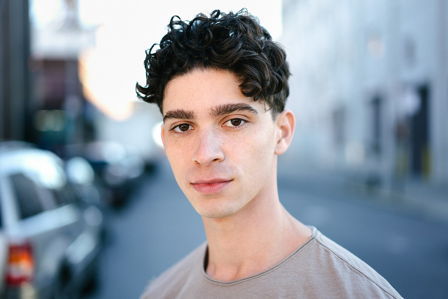
1994 – Isaac Cole Powell is an American actor and singer. He played the role of Daniel in the Broadway revival of the musical Once on This Island and was cast as Tony in the 2020 Broadway revival of West Side Story.
Powell was raised in Greensboro, North Carolina, the youngest of three children born to Terry and Will Powell, a three-time world CrossFit champion. His father is Mixed Native American and African-American; his mother is Caucasian. His sister, Jessica Powell, stars on TLC's My Big Fat Fabulous Life and is a Certified Personal Trainer at their father's fitness studio. Powell began to act in middle school with the Community Theatre of Greensboro. He attended Philip J. Weaver Academy, a performing arts high school, before transferring to a boarding program at the University of North Carolina School of the Arts (UNCSA) during his senior year of high school. He graduated from UNCSA with an acting degree in May 2017.
In November 2020, Powell was cast in Universal Pictures and director Stephen Chbosky's film adaptation of Dear Evan Hansen as new character Rhys, a high school jock.
Powell is gay and came out at the age of sixteen. In 2016, Powell met Broadway actor, Wesley Taylor, when Taylor was visiting University of North Carolina School of the Arts where Powell was a junior in the school's theatre program. The two then began a relationship in 2017 and were engaged in May 2019. They ended their relationship in 2021.

1998 – New Ways Ministries, a Catholic group, took out a full page ad in the New York Times calling for an end to anti-gay violence.


15 notes
·
View notes
Text

IN RUSSET AND SILVER by Edmund Gosse (Chicago: Stone & Kimball, 1894) Cover design by Will Buckley.
#beautiful books#book blog#books books books#book cover#books#vintage books#victorian era#book binding#book design#bibliophile
36 notes
·
View notes
Text
@clove-pinks tagged me in a reading meme--thanks! <3
Last read: The Whalebone Theatre by Joanna Quinn. This was a book club pick and while it took some time for me to get into it I ended up liking it more than I thought I would.
Current read: The Adventures of Amina al-Sirafi by Shannon Chakraborty, which is enormous fun so far (legendary Indian Ocean pirate comes out of retirement for one more job, supernatural occurrences ensue).
Also reading The Poetical Works of Thomas Lovell Beddoes, edited by Edmund Gosse (extremely Gothic), and just started Two Years Before the Mast by Richard Henry Dana Jr.
Next read: I'm looking forward to digging into the gigantic new book of Duroc's administrative correspondence (Correspondance du grand maréchal du palais de Napoléon Ier, edited by Jean-Pierre Samoyault and Charles-Éloi Vial). This is going to do so much for my research.
Also planning to read The Private Journal of William Reynolds, written by a midshipman on the 1838-1842 U.S. Exploring Expedition, and, if I'm not tired of maritime voyages by that point, Moby Dick.
Tagging @thiswaitingheart, @joachimnapoleon, @thiswaycomessomethingwicked, @explorersaremadeofhope, and anyone else who'd like to!
5 notes
·
View notes
Text
"Self-censorship was a practical necessity, but it was also part of the process of self-discovery, which makes it doubly unreasonable to accuse writers like Proust or James of failing to support the cause. Far more damage was done by the mutilations and incinerations of embarrassed readers. A diarist might turn his closet into a time-machine, but when it arrived in the future heirs and editors would be waiting to barricade the doors.
Some crude attempts at censorship are easily reversed - hims replaced with hers, and so on - but a great deal of the unread corpus was destroyed forever. Edmund Gosse and the librarian of the London Library organized Symond's papers into a pile in the library garden and set fire to them. Richard Burton's extensive research notes on 'pederasty' were probably destroyed by his widow. Minnie Benson's son Arthur left behind 'a packet of letters of very dangerous stuff' and another packet 'that had to be burned unopened', according to his brother Fred. Edward Lear's papers seem to have been selectively destroyed after his death by the man for whom Lear had harboured a 'twarted, frustrated, impossible love'.
To judge by the large number of known destructions (most presumably went unrecorded), at any moment in the 19th century someone, somewhere, was burning the papers of a homosexual relative. People who were almost certainly homosexual, like Thomas Gray or Thomas Lovell Beddoes, can now have no firm place in the record, especially since the standard of proof demanded of biographers is far stricter for homosexual than for heterosexual subjects. It is almost as if the surviving testimonies to forbidden love were written 2000 years rather than four or five generations ago. Ancient Greek literature and 19th-century confessional gay literature probably survive in approximately the same proportions."
From: 'Strangers. Homosexual love in the nineteenth century', by Graham Robb
Crying a little at the thought of all the queer records we've lost
#queer history#19th century#graham robb#victorian#lgbtqia+#gay#do you ever think about what will happen to your records?#fanfics and blogs you write or download#memes and photos and fanart and gifs you save#article or book pdfs on my harddrive#books in my bookcase#the need to make them last but at the same time not read by your relatives#censorship#self-censorship
3 notes
·
View notes
Text
The Golden Apple-Tree and the Nine Peahens (Serbian)
Scanned from: Gosse, Edmund, ed. The Allies’ Fairy Book.
U.S. edition. Philadelphia: J. B. Lippincott, 1916.
Illustrator: Arthur Rackham (1867-1939)
Page: opposite p. 104
Caption [p. 105]. The dragon flew out and caught the queen on the road and carried her away.
Work type: Illustration
Page size: 203 x 145 mm.
Illustration size: 137 x 102 mm.
Subjects: Children’s literature; Fairy tales; Dragons; Queens; Mountains
Work rights: Work in the public domain
Image file: 23071611
Repository: Minneapolis College of Art and Design (MCAD), Minneapolis, Minnesota, United States, Special Collections: PZ8 .G56 Al 1916
#illustration#vintage illustration#fairy tales#dragons#children’s literature#queens#mountains#arthur rackham
3 notes
·
View notes
Text
A family post for Thalien's parents & half siblings has been long overdue so this is me doing that now so let's get started. As a heads up this will be a longer post so uh . . . Let's see if I can word tonight lmao.
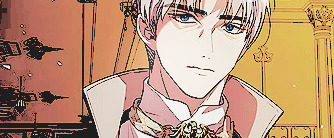
Starting off with Thalien's father, King Cenric Edmund Sigeberht Blueglade. Cenric is a very kind and caring family man but he is also strong ruler of his kingdom and willing to fight any battle for the better of his kingdom and its people. He has a very intimidating stature and aura but his eyes show such kindness in them ( though those blue hues can carry a coldness allowed only for enemies and those that wrong the people he cares for ). His first marriage was through an arrangement to forge an alliance between two strong kingdoms that had once waged war against one another, a chance to have a very strong ally was jumped at and so Cenric was wed to his first wife, Levina.
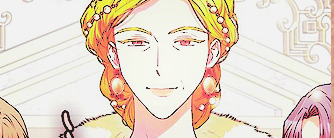
The former Queen and mother to all of Thalien's half siblings, Levina Nellwyn Edrea Blueglade ( née Ashburnum ). She was part of an alliance between kingdoms, an arranged marriage to Thalien's father and while they did not love each other deeply like a husband and wife, they greatly cared for one another and their children. Queen Levina was a very spoiled woman and wanted the finer things in life, teaching her children that they should always have what they wanted when they wanted and if there was something they disliked then they should get rid of it ( though she had no idea this would come to bite another person in the butt one day, Thalien ). She passed away from illness and left her children deeply saddened by her loss and her husband as well mourning the loss of someone he had come to care for as much as one can without falling in love ( it was mutual on both sides there was no romantic love but they had both wished for a large family ). On Queen Levina's death bed, she told Cenric he can still find true love one day and to never hold himself back just because of her passing.
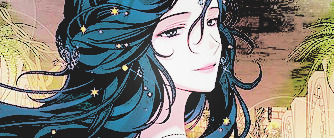
The second wife of Cenric and the next Queen of the Belladora Kingdom as well as Thalien's mother, Zephrine Blueglade ( née Tathame ). Zephrine was a commoner who worked in a tavern who would have never thought that she would become entangled with royalty, nor did she ever believe to fall in love with said royal, be raised to noble status at his order and be able to be wed to said man because his love for her was just as strong as her love for him. They both fell hard and fast, like they were made for one another. Zephrine helped ease the loneliness that came with the passing of the former Queen and let Cenric experience true love for the first time in his life. Zephrine was willing to treat the late Queen's children as her own even as they hated her and went against everything that she was, to which she did not take it personally because they were grieving the loss of a mother and she was patient and kind. She had Thalien not long after marrying King Cenric and thus, the final Blueglade from Cenric was born.
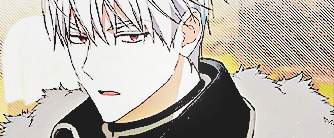
The eldest son of Cenric and Levina, Prince Kenelm Wymond Edric Blueglade takes more after his mothers side of the family in appearance except for the pale coloring that comes from King Cenric. Kenelm was already ten years old by the time Thalien was born. The gap in the half siblings age did not stop Kenelm from shunning his youngest sibling and allowing his other siblings to say and treat Thalien however they wished, hiding cruel words and hurtful pranks from his father with ease, a skilled liar. He did not become kinder to his youngest brother with age, instead becoming colder and words holding more venom ( as well as underlying hatred of a gift that his youngest brother has ).
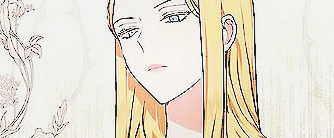
The second child of Cenric and Levina, their first daughter, Princess Genevieve Leighton Udele Blueglade. She is a beauty that other kingdoms princes and nobles swoon over, though she does not seem to give anyone the time of day. An icy beauty that focuses on enjoying the latest gossip and shunning her youngest sibling much like her eldest brother. Genevieve was nine when Thalien was born, only a year younger than Kenelm and mourning the loss of their mother still and hating the commoner that her father brought in to marry, feeling like he was replacing their mother too quickly and then trying to replace her and her siblings with a new child from a new wife, she hated Thalien from the start, never stopped hating him even, looking down on him and talking down to him to lower his confidence in himself ( but truly fearing his ability to the fullest because she seems to grasp how his ability can be used against any of them if he truly wished to use it that way ).
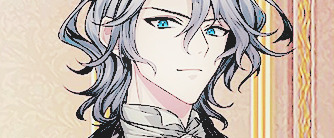
Third child of Cenric and Levina, second son, Prince Cordell Wulfstan Benedict Blueglade. The son with a truly rotten personality, a bully to not only his youngest sibling but to other nobles growing up as well or anyone that he felt he could knock down a few pegs. He is a loudmouth cocky brat that thinks he is better than everyone around him. He was four when Thalien was born and always was pushing Thalien around, pulling his hair, calling him names and stealing his toys when they were simply children but as they got older and into their teen years, his bullying became attempts at trying to make Thalien fall down the stairs and get him bucked off a horse ( he was not thinking these actions through surely as these incidents could easily injure Thalien greatly or even cause him to lose his life or maybe he was just cruel enough for that to be the point ).
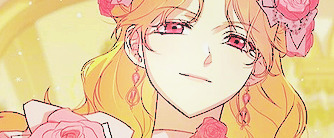
Finally the fourth child of Cenric and Levina, the second daughter, Princess Rosalie Bedelia Eadda Blueglade. She was only three when Thalien was born and as they are the closest in age she liked to make him think she was on his side for a while there, manipulative from a very young age, she had him do her bidding and treated him more like a servant than sibling, always having him clean up her messes and tote things when she went shopping and Thalien just happy that one of his siblings seemed to care did his best but even she grew cruel and joined Cordell in his treatment towards Thalien as they got older. She taught Thalien that he truly had not one sibling that cared about him in the slightest, that he would always be unwanted by them and hated for something out of his control.
#⸻ ❛ 𝐁𝐥𝐨𝐬𝐬𝐨𝐦 𝐢𝐬 𝐬𝐩𝐞𝐚𝐤𝐢𝐧𝐠 𝐧𝐨𝐰 » ooc.#// thalien's dad really mARRIED HIS MOM FAST SKDFHDGJKFSd#// but damn wow i hate his siblings#// cordell especially#// but yeah now back to ic content lets fucking go#long post //
7 notes
·
View notes
Text
What Charm school did Ralph go to?
Been speculating for a while about how Ralph got so skilled with the ladies whilst also researching his religious background.
I wonder if he was roped in to 'recruiting' converts as a child/young man?
For some reason this snippet from 'Father and Son' by Edmund Gosse, describing the origins of his father's Plymouth Brethren chapter, made me think of Ralph:
"A few years before we came, a crew of Cornish fishermen, quite unknown to the villagers, were driven by stress of weather into the haven under the cliff. They landed, and, instead of going to a public-house, they looked about for a room where they could hold a prayer- meeting. They were devout Wesleyans; they had come from the open sea, they were far from home, and they had been starved by lack of their customary religious privileges. As they stood about in the street before their meeting, they challenged the respectable girls who came out to stare at them, with the question, 'Do you love the Lord Jesus, my maid?' Receiving dubious answers, they pressed the inhabitants to come in and pray with them, which several did......They were finely-built young men, with black beards and shining eyes, and I do not question that some flash of sex unconsciously mingled with the curious episode, although their behaviour was in all respects discreet. It was, perhaps, not wholly a coincidence that almost all those particular girls remained unmarried to the end of their lives. After two or three days, the fishermen went off to sea again. They prayed and sailed away, and the girls, who had not even asked their names, never heard of them again. But several of the young women were definitely converted."
#ralph lanyon#the charioteer#mary renault#Father and Son#Edmund Gosse#It did also make me think of James Purefoy from Fisherman's Friends ngl
3 notes
·
View notes
Text
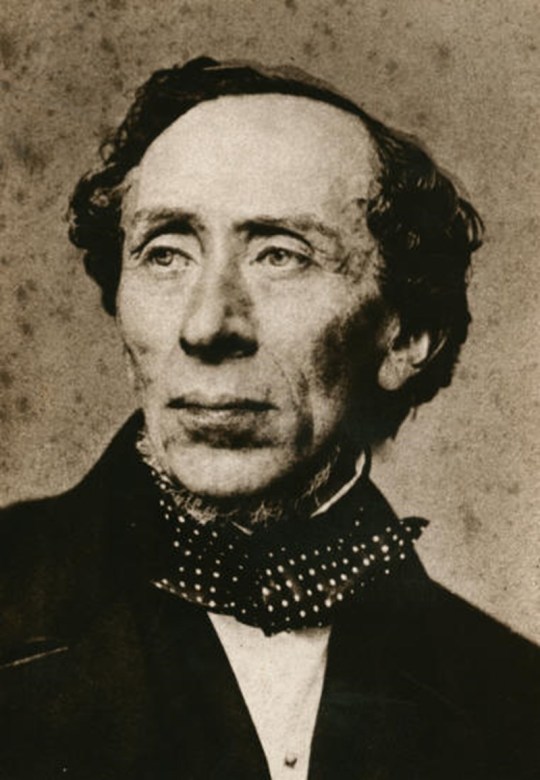
First Impressions: Hans Christian Andersen
[Edmund] Gosse expected to find a handsome old man and not, as he said, a gorilla with excessively long, loose-jointed arms, giant hands, and a hideous face. But Gosse too witnessed the transformation that took place as soon as Andersen began to [read aloud]. A beautiful music and an inner refinement promptly poured forth from the aging author. "As soon as he spoke, yes, if he even smiled, his genius was evident," writes Grosse.
(p. 216)
And women loved him for his innocence. Not, as Charlotte Bournonville so delicately expresses it in her memoirs, because he was a primo amoroso, or handsome in appearance. As the German harpist and pianist Clara Schumann once said without hesitation, the Danish fairy-tale writer was "the ugliest man imaginable" ! And yet women, both young and old, thronged around him almost everywhere he went in the world.
(p. 141)
The Scottish author Elizabeth Rigby had a strong first impression of Andersen: "A tall, gaunt, fleshless man who twisted and bent his body like a lizard with a hollow-cheeked, cadaverous face." She was especially taken with the Dane's innocent radiance and noted in her diary that it wasn't so strange that Andersen found everyone to be friendly[.]
(p. 399)
The theater's leading dancer of the day, Anne Margrethe Schall (also known as "Madame Schall"), the poet and critic Knud Lyne Rahbek, and Lord Frederick Conrad von Holstein —both of whom sat on the board of the Royal Theater— all received visits from the boy. His frail, sickly exterior proved to be inversely proportional to his outspoken manner and the almost mulelike will that he exhibited whenever he planted his big boots full of holes on the doorsteps of the city's better families and was granted an interview. The solo dancer turned him away, convinced he was more of a lunatic than a genius. The theater directors also had little patience with him. Holstein didn't think such a gaunt figure was suited to go on stage, to which the young Andersen replied —as he tells it in his memoirs— that if His Lordship would hire him at a salary of 100 rigsdaler per year, he would undoubtedly make haste to grow fat!
(p. 20)
Source: Hans Christian Andersen: A New Life
4 notes
·
View notes
Text
All these matters drew my thoughts to the subject of idolatry, which was severely censured at the missionary meeting. I cross- examined my Father very closely as to the nature of this sin, and pinned him down to the categorical statement that idolatry consisted in praying to anyone or anything but God himself. Wood and stone, in the words of the hymn, were peculiarly liable to be bowed down to by the heathen in their blindness. I pressed my Father further on this subject, and he assured me that God would be very angry, and would signify His anger, if anyone, in a Christian country, bowed down to wood and stone. I cannot recall why I was so pertinacious on this subject, but I remember that my Father became a little restive under my cross-examination. I determined, however, to test the matter for myself, and one morning, when both my parents were safely out of the house, I prepared for the great act of heresy. I was in the morning-room on the ground-floor, where, with much labour, I hoisted a small chair on to the table close to the window. My heart was now beating as if it would leap out of my side, but I pursued my experiment. I knelt down on the carpet in front of the table and looking up I said my daily prayer in a loud voice, only substituting the address 'Oh Chair!' for the habitual one.
Having carried this act of idolatry safely through, I waited to see what would happen. It was a fine day, and I gazed up at the slip of white sky above the houses opposite, and expected something to appear in it. God would certainly exhibit his anger in some terrible form, and would chastise my impious and willful action. I was very much alarmed, but still more excited; I breathed the high, sharp air of defiance. But nothing happened; there was not a cloud in the sky, not an unusual sound in the street. Presently, I was quite sure that nothing would happen. I had committed idolatry, flagrantly and deliberately, and God did not care.
Edmund Gosse, Father and Son
#this is relatable except I would have been terrified to even have thought of such a thing and scared shitless to try it#I took down my pokemon poster because I thought it was idolatry
6 notes
·
View notes
